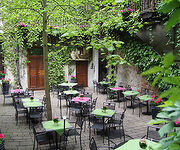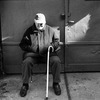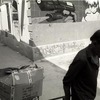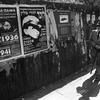Spy Storm Swells
Another pillar of Polish Catholicism was shaken yesterday when Father Janusz Bielanski resigned from his post as Rector of Krakow's Wawel Cathedral.
It was the second such resignation in two days, following the fall of incoming Archbishop of Warsaw Stanislaw Wielgus this Sunday. Again, it was allegations of spying that provided the cause.
Details of collaboration with Communist security services have been slow to emerge since the return of democracy to Poland in 1989. The Church entered the new reality on a high, having won the peoples' hearts in the struggle against the Communist Party. Polish Pope John Paul II was himself a catalyst for the peaceful Solidarity revolution that grabbed the Western world's attention in the early '80s. However, in recent times, a gathering storm has lashed at the doors of the Polish Curia.
As access to pre-1989 files has become freer, historians have suggested that as much as ten per cent of the clergy collaborated with the old regime. Many campaigners for the truth waited to divulge information out of respect for the ailing Pope's feelings. But when the Pontiff passed away in 2005, the floodgates opened.
It is a complex legacy. Many files were destroyed by the last head of the Secret Police in 1989. Furthermore, chasms divide those who were compelled to have 'a talk' and those who became paid informers for decades.
The Church was proud of its role in shepherding the people through the trying Communist era, and the collaboration issue represented a Pandora's Box that many felt would jeopardise the Church's stature. However, by not seizing the bull by the horns, the Church has risked opening itself up to a backlash.
Father Tadeusz Isakowicz-Zaleski is a scion of Poland's centuries old Armenian Catholic minority. He was also one of the 'Solidarity Priests' so hated by the Communists. He was twice beaten up during the mid-eighties. Yet he refused to keep quiet, in spite of the fact that his colleague, Father Jerzy Popieluszko, was murdered by the Security Services in 1984.
A year and a half ago during the 25th Anniversary Celebrations of Solidarity, Zaleski was tipped off that there was a pre-1989 file on him in Krakow. Under present law, one can view one's own file, as well as those who informed on you. Intrigued, Zaleski sought permission from the IPN (Institute of National Remembrance) to study the documents. The results were devastating.
Father Zaleski found some five hundred pages of material on himself alone. He was swiftly able to identity several clergymen who had informed on him. Most crucially, evidence suggested that four figures who had risen to bishop status by 2005 were themselves past informers.
Zaleski resolved to publish a book on the matter, but met with an ambivalent, at times hostile reaction from the Polish Church hierarchy. By this stage, large sections of the press and the public were behind Zaleski. Yet after being given the go-ahead, Zaleski was then silenced by the Church in May 2006. Publishers got nervous about taking on the book. However, a month later the silencing order was reversed. Then in September 2006, Zaleski suffered the humiliation of having his status as Armenian Catholic pastor removed. There was an outcry, and a month later his status was returned. Meanwhile, the Church decided to sanction their own internal investigation into the collaboration issue.
In the course of Father Zaleski's research, he wrote to several high-ranking figures, asking for their comments on the allegations of collaboration. Several did not reply. Many that did denied the charges.
However, three significant church figures have already had their careers turned upside down since the Pope's death, owing to revelations by Polish historians and journalists. On Sunday, a fourth joined the list - incoming Archbishop of Warsaw Stanislaw Wielgus. It was the most high profile of all the cases thus far. For a fortnight the press went into overdrive. After denying allegations for two weeks, Wielgus finally crumbled the day before his official induction. He resigned before a full congregation in Warsaw Cathedral. The following Monday, Janusz Bielanski, the Rector of Poland's most sacred Cathedral - Wawel in Krakow - also stood down over allegations of spying.
The crisis does not show signs of abating. Father Zaleski's own book - already a sensation before its publication this Spring - is certain to keep the issue very much on the front pages. Polish film director Maciej Gawlikowski is already working on a project about Zaleski.
Yet for ordinary Poles, the Church problem taps into the wider issue of the 1989 reversal. There was no witch-hunt to keep former Communists out of important public positions. Furthermore, managers of state-run factories found favourable conditions to take over the newly privatised businesses. Yet the contradictions within the system have led to resentments, a reality that will be difficult to remedy. Seventeen years after the fall of Communism, the Soviet ghosts are far from exorcised. Indeed, they will continue to haunt all echelons of society for many years to come.

 Kawaleria Szarza Smaku
Kawaleria Szarza Smaku
 Europejska
Europejska
 Krakow Pinball Museum
Krakow Pinball Museum






